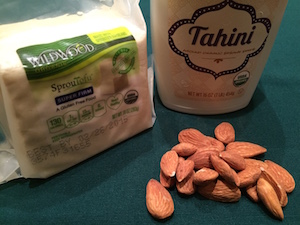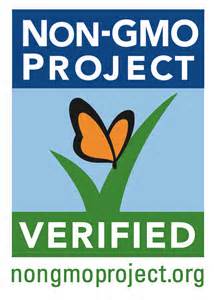![Eating Healthy: Overcoming the “Cooking Obstacle”]()
by plant4health | Mar 2, 2015 | grocery shopping, Nutrition, Whole food
 The most common excuses I hear for not eating healthier are: “I don’t have time”, “I don’t like cooking”, and “I’m an awful cook”. These are the excuses of modern life.
The most common excuses I hear for not eating healthier are: “I don’t have time”, “I don’t like cooking”, and “I’m an awful cook”. These are the excuses of modern life.
We are so busy rushing from here to there that time has become a precious commodity. Additionally, our taste buds, conditioned to prefer heavily sugared and processed foods, are unaccustomed to the natural flavors of real whole foods. This perpetuates the fear that healthy cooking wont taste good. Compounded with the fact that most of us were raised on convenience foods and not taught basic cooking skills as children, cooking has become a foreign experience instead of second nature.
As a result, one of the biggest obstacles to eating healthy is cooking. The perception that cooking is a burden and a chore has become an epidemic. Cooking requires you to stop and focus on your physical needs and be creative as you combine flavors and textures to produce tasty combinations. Our society places more value on the immediate gratification of food fulfillment, overlooking not only the health benefits of cooking your own meals, but the pleasure that can be found in taking the time to prepare and share a healthy delicious meal. (more…)

by plant4health | Jan 26, 2015 | Nutrition, Vegan, WFPB, Whole food, plant-based
The second question vegans are asked, after “where do you get your protein,” is usually “so what about calcium? Don’t you need milk products for that?”
Just as we can get all the protein we need from whole food plant-based (WFPB) sources, we can also get all the calcium we need.
Calcium, an alkaline earth mineral, is a building block of teeth and bones and is important in signaling cellular processes. Long-term calcium deficiency can lead to osteoporosis (thinning of the bones), rickets (weakening of the bones) and a reduction in the blood’s ability to clot.
We have grown up thinking that the best sources of calcium are milk, cheese, yogurt, etc. However, many research studies show that the countries in which dairy consumption is the highest, also have the highest incidence of osteoporosis and hip fractures. Dairy products (and meat) create acid in our bodies. Our bodies then pull calcium from our bones, which is highly alkaline, to neutralize the acid, resulting in calcium loss.
It’s important to not only consume calcium (via plant-based sources), but to prevent it from being leached from your bones. Other than eating an alkalizing diet, the Physicians Committee for Responsible Medicine, PCRM.org, recommends limiting salt to 1 to 2 grams per day (since it increases calcium loss via the kidneys), limiting alcohol (since it reduces your body’s ability to build new bone) and not smoking. In addition, it’s important to do weight-bearing exercises (like walking, running, hiking, and lifting weights), and to get enough Vitamin D (see below).
The Recommended Dietary Allowance (RDA) of calcium for adults is 1,000 to 1,200 mg per day and 1,300 mg for pregnant or lactating women.
Plant-based sources of calcium include leafy green vegetables, legumes, nuts, seeds, fortified plant milks and fortified orange juice.
Magnesium is also a building block of bones. The RDA for magnesium ranges from 400-420 mg for adult men and 310-400 mg for adult women. Here are some plant-based foods with the amounts of calcium and magnesium per serving:
| Food |
Calcium
|
Magnesium |
| Tofu 1/2 c. made with calcium sulfate |
861 mg |
73 mg |
| Orange Juice (calcium fortified) 1 cup |
349 mg |
27 mg |
| Soy milk (calcium fortified) 1 cup |
200-300 mg |
32 mg |
| Collard greens, cooked 1 cup |
268 mg |
40 mg |
| White beans, 1 cup cooked |
161 mg |
113 mg |
| Dried figs, 10 each |
136 mg |
57 mg |
| Tahini (ground sesame seeds) 2 TB |
128 mg |
28 mg |
| Chick peas /garbanzo beans 1 cup canned |
109 mg |
61 mg |
| Swiss chard 1 cup cooked |
102 mg |
152 mg |
| Kale 1 cup cooked |
94 mg |
23 mg |
| Almonds 1/4 cup |
94 mg |
304 mg |
| Sweet potato, 1 cup boiled |
76 mg |
54 mg |
| Broccoli |
62 mg |
33 mg |
Vitamin D is essential for calcium absorption. Our bodies make Vitamin D through exposure to the sun. So many of us have grown up fearing skin cancer and slather our bodies with sun screen. But 10-15 minutes of sun on our bare skin in the morning or late afternoon is beneficial. As we age, our bodies are not as effective at producing Vitamin D from the sun. And foods, even plant-based, may not be enough. Have your Vitamin D level checked by your doctor and take a D3 supplement as recommended. The RDA for Vitamin D in adults is 600-800 IU.
Sources:

by plant4health | Jan 22, 2015 | Uncategorized
GMO is one of those acronyms everyone recognizes, but few people understand what it really means and why we should be concerned about eating them.
GMO stands for Genetically Modified Organism. An example regarding our food supply; GMO crops are those plants that scientists have changed their genetic makeup so they can withstand direct applications of herbicides and/or produce insecticides in order to control invasive weeds and insects that threaten certain crops.
Supporters for GMO crops claim that genetically engineered plants are the way of the future. According to the Food and Agriculture Organization of the United Nations the potential benefits of GMO plant foods are:
- Better resistance to pests
- Require the use of less pesticides
- More nutritious
- Higher crop yields
- Longer shelf life
- Cheaper to produce
On the surface it all sounds great, a win-win for agriculture, society and the environment. However, many concerns continue to surface. It can be difficult to find the facts when there have been so few scientific studies providing hard evidence proving its safety and widely conflicting opinions. As we await more studies to bring clarity, we must consider what little we know so far: (more…)

by plant4health | Jan 2, 2015 | Nutrition, Recipes
Welcome to Plant-based4Health! We are excited about the launch of our new website, a “go-to place” for vegan resources and recipes. Join us as we share successes and challenges of being vegan and discuss important information about the food we eat and how it relates to our health.
One of the important ways to live healthier is to choose organic foods when possible. What does “organic” actually mean? According to the USDA, “Organic agriculture produces products using methods that preserve the environment and avoid most synthetic materials, such as pesticides and antibiotics. USDA organic standards describe how farmers grow crops and raise livestock and which materials they may use.”
There are several different ways companies boast that their products contain organic contents. But be careful, the seals can be misleading, making it important to understand the meaning behind the different labels. (more…)
 The most common excuses I hear for not eating healthier are: “I don’t have time”, “I don’t like cooking”, and “I’m an awful cook”. These are the excuses of modern life.
The most common excuses I hear for not eating healthier are: “I don’t have time”, “I don’t like cooking”, and “I’m an awful cook”. These are the excuses of modern life.


